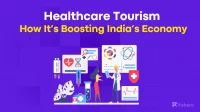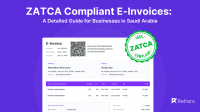Medium, Small and Micro Enterprises (MSMEs) are the strength of the Indian economy. The sector alone contributes to 30% of the GDP and 40% of the total exports. In alignment to the Make in India vision, the government had taken several steps to support MSMEs. Starting with allocating USD Dollars 1 billion to the MSME sector in 2019-20 budget.
With the COVID-19 pandemic and pan India lockdown the sector has faced serious repercussions including low demand, migration of workers, salary cuts, layoffs, working capital issues, supply side disruptions and around 35% of MSMEs have shut down their businesses or are on the verge of doing so.
For seeing eye to eye with making India Atma Nirbhar, something more is required on the lines of a structural change hinting towards modernisation of MSMEs. With the digital platforms growing, there is a need for skill upgradation, use of digital tools and techniques, etc. to grow revenues, attract investment and to sustain in the long-term.
With the entry of giants like Flipkart, Amazon, and Facebook and Google investing in Reliance Jio, the e-commerce industry in India is ready for a 360 degree rotation. Bringing in global experience through benefits to suppliers, advanced technology and tested practises. They are to make the MSMEs ready to meet the consumer demands through use of high-end softwares, digitization and scaled management.
Even though the Indian MSMEs are climbing the ladder and we see high potential in them, from the world’s perspective they are in threat from other globally competitive countries. While to level the playing field, the local MSMEs need to match their quality to the global standards along with better efficiency and higher productivity. India’s name should be visible when the Chinese firms seek to relocate or we should be ready to maintain the position in the globally interconnected supply chain.
World Bank and DPIIT together created the Business Reforms Action Plan (BRAP), wherein India previously ranked at 141st position and has jumped to 63rd position showcasing spectacular performance. However, to cope with post pandemic effects and to overcome the other problems faced by MSMEs, an in depth solution is needed. For their ease of doing business (EoDB), a special metric for MSMEs is proposed inspired by World Bank’s EoDB. It is outlined keeping in mind the different needs that MSMEs specifically face. The focus is on including parameters that circumference around their working, designed state-wise, or even district-wise. Solutions that are more narrow and specific compared to general, result in excellent performance.
PHD Chamber and Associations have already formed a proposal stating such matrices for MSMEs EoDB. Along with focusing on operations of MSMEs, certain other issues majorly tax related need to be addressed mainly in such a cash crunch situation. Read here in detail about the steps undertaken by FICCI in relation to this issue.
Other startups and MSME news from the week gone by:
Scale up MSME lending – PM Modi to Lenders.
48% of exports related to MSME Sector – Nitin Gadkari. Read more details here.
Government looks to expand small business loan coverage. Details can be read here
If you are trying to make a decision between Hiring Full timers and Freelancers, read our blog here

















